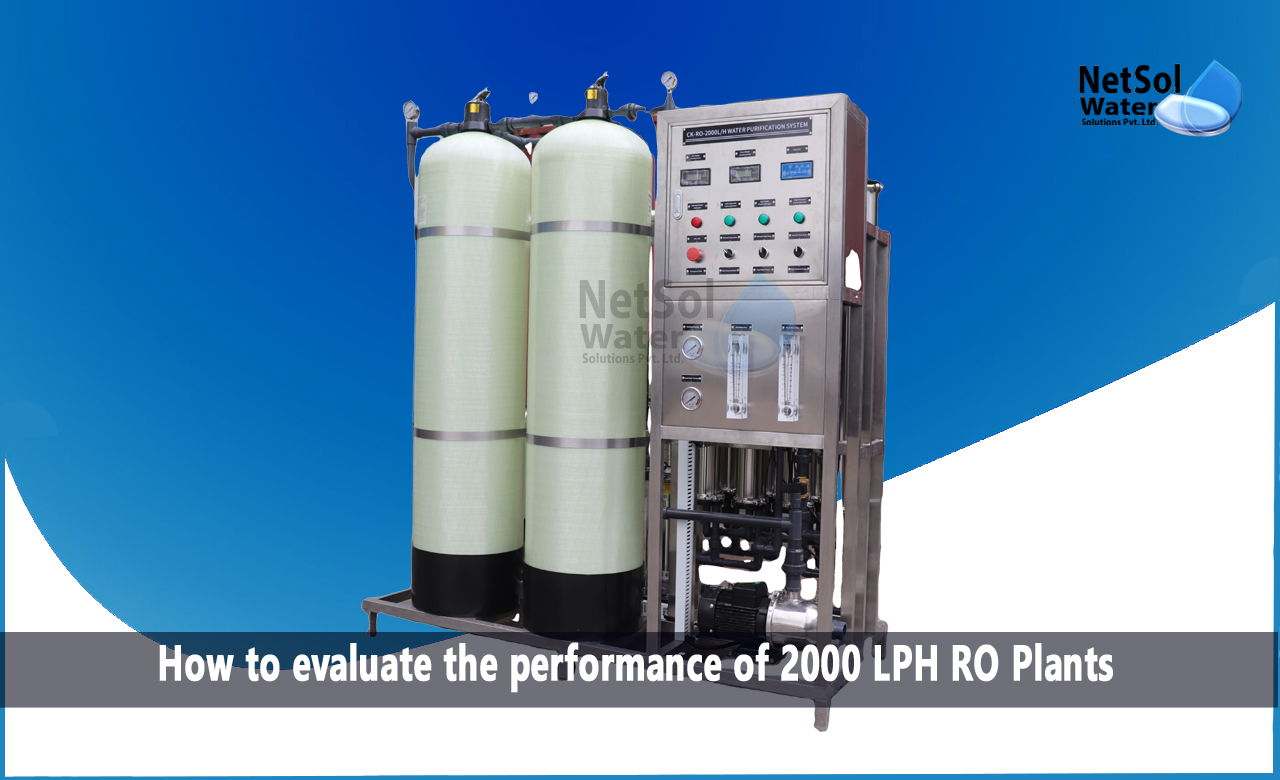How to evaluate the performance of 2000 LPH RO Plants?
Evaluating the performance of a 2000 LPH (liters per hour) RO (reverse osmosis) plant is essential to ensure that it is operating efficiently and effectively. RO plants are designed to remove impurities and contaminants from water, producing clean and safe drinking water.
In this blog, we will discuss how to evaluate the performance of a 2000 LPH RO plant.
1- Flow Rate
The flow rate of an RO plant is the volume of water that passes through the system in a specific time. In a 2000 LPH RO plant, the flow rate should be 2000 liters per hour. To evaluate the flow rate, measure the amount of water produced by the plant over a specific period and compare it to the expected output. If the actual flow rate is lower than expected, it could indicate a problem with the system, such as a clogged filter or a malfunctioning pump.
2- Water Quality
The quality of the water produced by an RO plant is crucial to ensure that it is safe for consumption. The water should be tested regularly for parameters such as total dissolved solids (TDS), pH, and turbidity. TDS measures the concentration of dissolved ions in the water, and a high TDS level could indicate that the RO membrane is not functioning correctly. pH measures the acidity of the water, and a low pH could indicate that the water is acidic and potentially corrosive. Turbidity measures the clarity of the water, and a high turbidity level could indicate that the filters are clogged.
3- Reject Water Ratio
RO plants produce two types of water: product water and reject water. Product water is the treated water that is suitable for consumption, while reject water is the water that is rejected by the RO membrane and contains impurities and contaminants. The reject water ratio is the ratio of reject water to product water, expressed as a percentage. In a well-functioning RO plant, the reject water ratio should be below 30%.
4- Pressure
The pressure in an RO plant is essential for the proper functioning of the membrane. The pressure should be within the recommended range specified by the manufacturer. Low pressure can reduce the efficiency of the system and increase the reject water ratio, while high pressure can damage the membrane and reduce its lifespan. To evaluate the pressure, measure it at different points in the system, including the feed water, the membrane inlet, and the membrane outlet.
5- Energy Consumption
RO plants consume a significant amount of energy, making energy consumption an essential parameter to evaluate. The energy consumption of the plant can be measured by monitoring the power consumption of the pumps, motors, and other electrical components. The energy consumption should be within the expected range specified by the manufacturer. A higher energy consumption could indicate that the system is not operating efficiently and could result in increased operating costs.
Conclusion:
In conclusion, evaluating the performance of a 2000 LPH RO plant is crucial to ensure that it is operating efficiently and effectively. By monitoring parameters such as flow rate, water quality, reject water ratio, pressure, and energy consumption, operators can identify potential problems and take corrective action to ensure that the system is functioning optimally.
For any other support, inquiries, or product purchases, call on +91-9650608473 or email at enquiry@netsolwater.com



